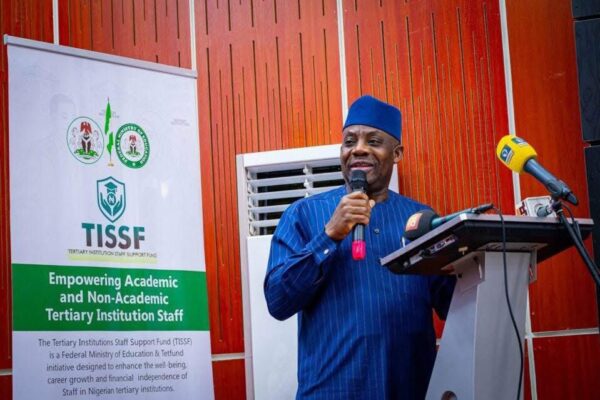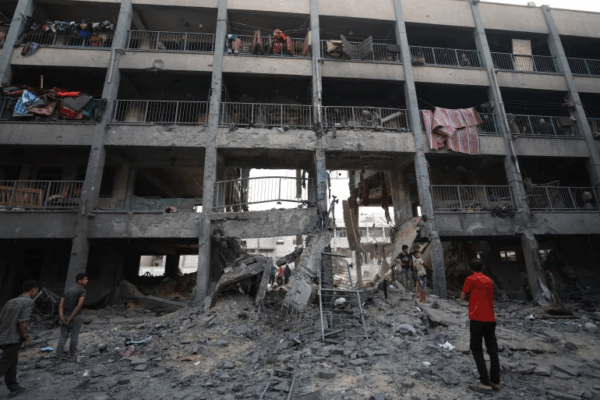The National Association of Seadogs (Pyrates Confraternity) has described Nigeria’s worsening literacy crisis as a “national emergency,” warning that millions of out-of-school children are being condemned to lives of poverty, exclusion, and crime unless urgent action is taken. In a statement issued on Sunday to mark this year’s International Literacy Day themed “Promoting Literacy in the Digital Era: Bridging the Gap,” NAS Cap’n, Dr Joseph Oteri, said the scale of Nigeria’s challenge was unprecedented. “Despite being Africa’s largest economy, Nigeria harbours the world’s highest number of out-of-school children. UNICEF puts the figure at 10.2 million children of primary school age, while UNESCO estimates it rises to 18.3 million when adolescents are included. In real terms, one in every five out-of-school children worldwide is Nigerian,” Oteri stated. He noted that this crisis undermines the country’s ability to meet global development benchmarks, particularly the Sustainable Development Goals (SDGs) relating to quality education, poverty reduction, gender equality, and reduced inequalities. According to him, persistent obstacles such as insecurity, poverty, child labour, gender discrimination, and poor infrastructure continue to push millions of children out of school and into risky environments where they are exposed to drugs, crime, exploitation, and even trafficking. “Literacy in the 21st century must be holistic, inclusive, and digitally empowered. Nigeria cannot achieve meaningful development while millions of its children remain uneducated, digitally excluded, and socially disenfranchised,” Oteri stressed. The NAS leader also raised concerns over Nigeria’s growing digital divide. He explained that while children in urban centres increasingly benefit from technology-enabled learning, millions in rural communities remain locked out due to lack of affordable internet, digital devices, and ICT centres. “This uneven access is widening inequality and could create a generation of digitally illiterate citizens in a world driven by knowledge and innovation,” he warned. To reverse the trend, NAS unveiled a six-point rescue plan for Nigeria’s education sector. First, Oteri called for greater public investment, with at least 20 percent of national and state budgets earmarked for education and closely monitored to prevent diversion of funds. He demanded the strict enforcement of the Universal Basic Education policy, ensuring free, compulsory, and quality schooling for every child, free from hidden costs. Thirdly, he pressed for digital inclusion, urging government to provide affordable broadband, digital learning devices, and community ICT hubs to bridge the technological gap. NAS also advocated expanded social protection measures, including larger school feeding schemes, scholarships, and conditional cash transfers to keep children from dropping out due to economic hardship. The fifth proposal stressed partnerships for change, with government collaborating more effectively with NGOs, civil society, faith-based organisations, and the private sector to mobilise resources and expertise. Finally, Oteri insisted on accountability and governance, demanding that anti-corruption safeguards be extended to the education sector to ensure resources actually reach classrooms and students. “Every child left uneducated today becomes a burden on society tomorrow. The cost of inaction is dire,” he warned. As part of its own contribution, Oteri announced that NAS would launch a month-long National Back-to-School Advocacy and Humanitarian Project from September 8 to October 8, 2025. The campaign, to be carried out by NAS chapters across Nigeria and abroad, will combine advocacy with direct support to children and families. According to him, this builds on existing initiatives such as the NAS Street Child Project and its Back-to-School Tuition Support Programme, which provide scholarships, educational materials, and community outreach to vulnerable children. The NAS Cap’n appealed to government at all levels, civil society, private sector, communities, and international partners to act decisively. “Literacy is more than the ability to read and write; it is the passport to economic participation, resilience against crime, and empowerment for citizenship. Together, we can bridge the gap. Together, we can secure a brighter future for every Nigerian child,” he concluded.







